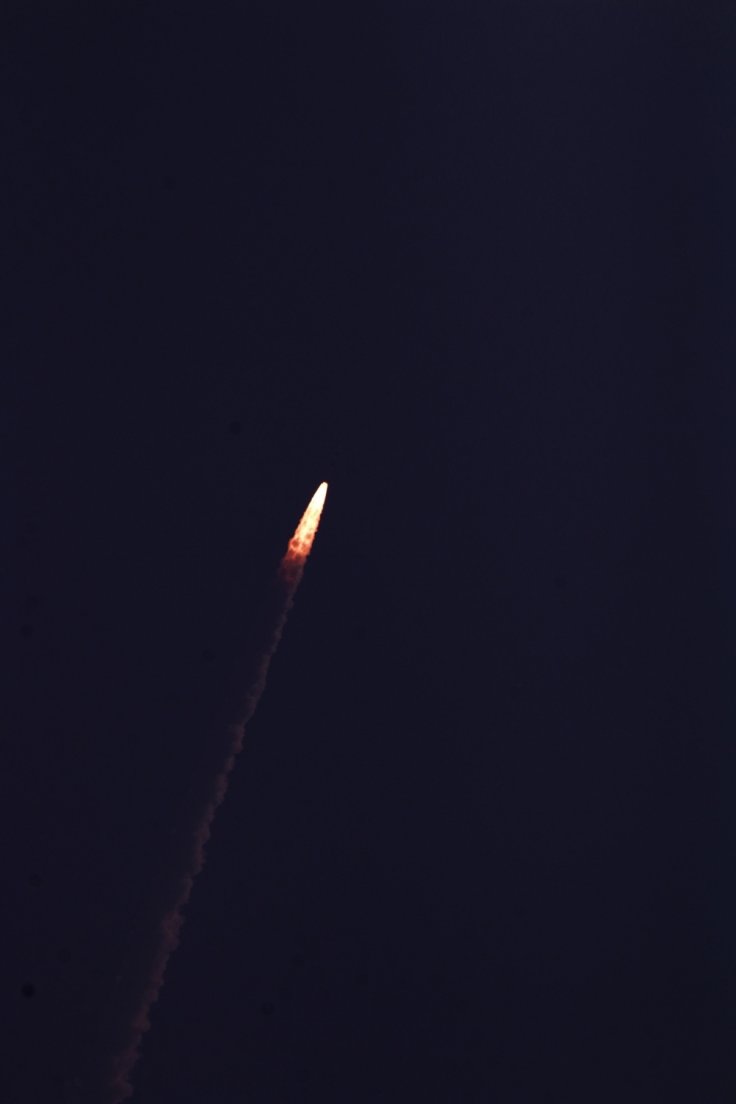
India successfully launched its Cartosat-2f remote sensing satellite along with 30 other nano and microsatellites at 9.29 A.M. on Friday, January 12, 2018, using its workhorse PSLV from the first launch pad in Satish Dhawan Space Center (SDSC) in Sriharikota, Andhra Pradesh.
The mission carries Cartosat 2F, the 6th satellite of Cartosat-2 remote sensing satellite series, and 28 other foreign satellites from 6 other countries including Canada, Finland, France, Republic of Korea, UK, and the USA. The payload includes 25 nanosatellites and 3 microsatellites. India has also launched one microsatellite and one nanosatellite during the mission.
The mission has also carried India's 100th satellite to its orbit. In total, the vehicle carried a payload of 1,323 Kg. Cartosat-2F alone weighs 710 Kg while the combined weight of other satellites accounts for 613 Kg. Originally scheduled for January 10, the launch has been postponed to January 12.
Upbeat Indian Prime Minister Narendra Modi congratulated the Indian Space Research Organisation (ISRO) team on the successful launch of the 100th satellite. "The launch of the 100th satellite by ISRO signifies both its glorious achievements and also the bright future of India's space programme...This success in the New Year will bring benefits of the country's rapid strides in space technology to our citizens, farmers and fishermen," Modi tweeted.
In fact, Cartosats has more strategic earth observation functions for civil and military applications and was built indigenously with various cartographic, urban and rural applications. These applications will be useful in monitoring coastal land use, regulation and utility management, monitoring roads, water distribution, in preparation of land use maps, identification of geographical and man-made features.
This is the 42nd launch of the Indian Space Research Organizations (ISRO) PSLV launcher which is considered the most trusted Indian launch vehicle. The vehicle carries records for 39 consecutively successful satellite launches till August 31, 2017. It also holds a record of carrying 104 satellites to its orbit in one go last February. PSLV has also carried India's Lunar and Mars missions Chandrayaan-1 and Mangalyaan-1.
ISRO has planned to launch series of missions using the PSLV during the first phase of 2018. The agency is also working on its second moon mission Chandrayaan-2 which is to be launched in the first quarter of 2018.
The Indian Space agency also plans to launch its heaviest communication satellite GSAT-11 from French Guiana, South America. GSAT-11 will be the heaviest communication satellite ever launched by India for the satellite-based Internet communication, which is expected to revolutionize the country's telecom sector. The satellite-based Internet has been mainly focused on rural India under the present government's Digital India programme to bring faster internet connectivity for everyone in the Country.
PSLV launches were halted for the past four months following its failure to launch IRNSS-1H, the eighth satellite of Indian Regional Navigation Satellite System into its orbit on August 31, 2017. ISRO conducted the deep investigation on the failure and had found that the August 31 mission faced a setback when the 320-tonne PSLV-C39 launcher failed to separate its heat shield and deliver the satellite from its cone-shaped top-end.








